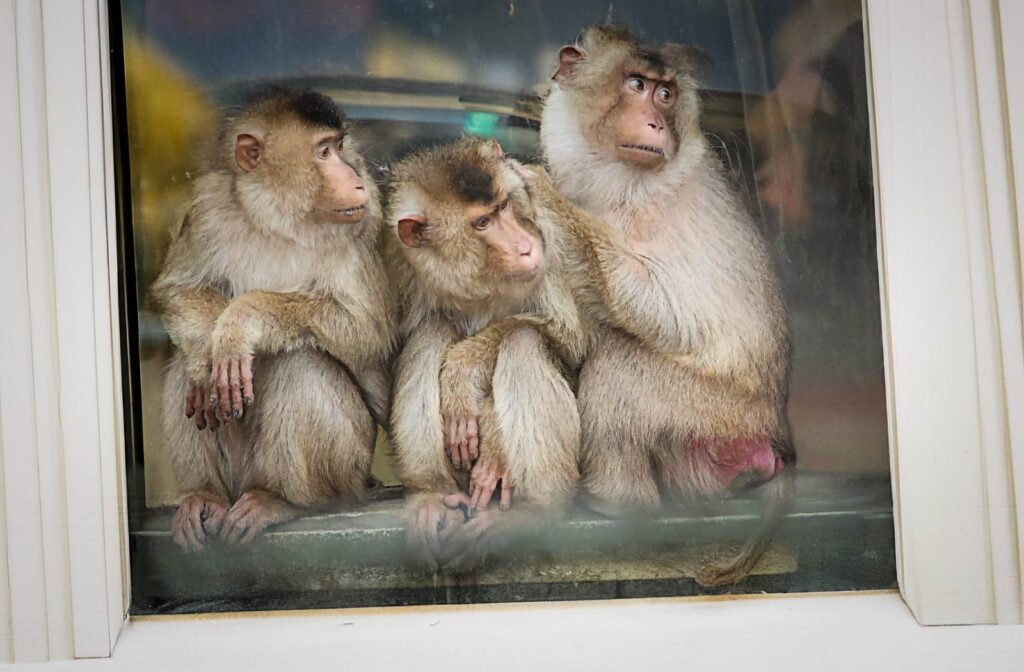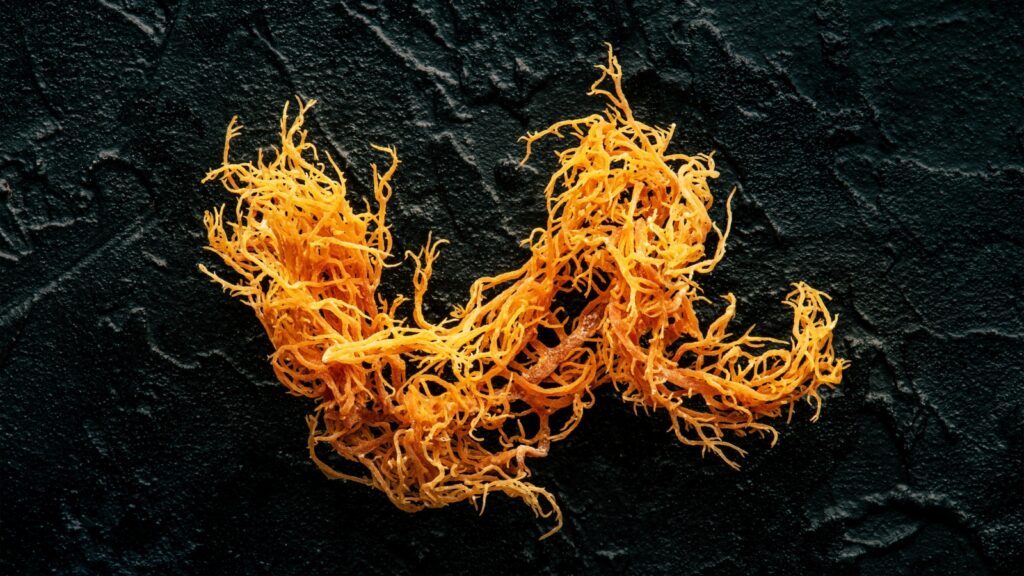For almost a decade now, I have been traveling broadly, speaking to groups of all sizes and almost every discipline you can think of about the big change that appeared to be converging on the horizon.
Often characterizing the coming shift in terms of breakdowns and breakthroughs, I've tried to build integrated mental pictures of the extraordinary nexus of driving forces — both conventional and unconventional — that seemed destined to reconfigure the way we live on this planet. My book, Out of the Blue, introduced an approach for making sense out of big events that would otherwise be surprises, and my latest volume, A Vision for 2012: Planning for Extraordinary Change, uses the breakdown/breakthrough themes to propose a general approach for dealing with large scale change.
So, I've been thinking about this possibility for quite some time. (My wife would probably tell you that I think about it all of the time.)
I generally agree with the many thoughtful people who consider predicting the future to be a fool's errand. It is intrinsically fraught with so much complexity and uncertainty that the best one can do with integrity is to array potential alternatives — scenarios — across the horizon, and then try to think about what might be done if one of those worlds materializes.
Scenario planning has certainly been an effective discipline, helping many organizations to imagine potentialities that probably otherwise wouldn't have shown up in their field of view. But as I facilitate organizations going through these exercises, the little, nagging voice in the back of my head is not asking, "What is the array of possible futures?" — it is always wondering, "What is the future really going to be?" It wants concreteness. It wants predictions.
I think that no one knows for sure what the future will bring, but after some time of being in this business one begins to be able to discriminate between what is substantive and structural and what is largely speculative. For me, at least, some things have an intuitive sense of being real and important, and the rest of the possibilities lack just enough gravitas that I know that they're only "ideas." That intuitive sense is supported when it becomes possible to triangulate from a number of independent sources that all point to the same conclusion — the possibility has substance.
People always ask me after my talks what I think is going to happen. "With all of these converging trends, what is 2012 really going to look like?" It happened again last week in a radio interview. Mostly I hedge and dance a bit and say that I don't know for sure. There will be a new world and a new human that will come out of all of this. The notion of cooperation will shape the way people see themselves and the rest of the world . . . and there will be new institutions and functions, etc. Pretty general stuff.
But, over a year ago, the notion that all of this big change could spell the substantial reconfiguration of the familiar country that I have lived in all of my life began to gel in a way that moved beyond the notion of being just a possibility — a wild card — into that space of plausibility. I now have come to believe that it is likely and will happen — soon.
Ideas like this are so big and disruptive that it is really quite hard to get to the place where we take them seriously. For most of us, our lives are evolutionary — punctuated, perhaps with trauma now and then, but mostly populated by events that are familiar, even if they don't always make personal sense. The concept that EVERYTHING might change is so foreign to any experience that most of us have ever had that even if we say the words and talk about the possibility, we really don't internalize what this might mean.
Therefore, along with most folks, I'm kind of late to this game. There are other notable thinkers who jumped to the natural conclusion quite some time ago. Dmitry Orlov, for example, first started to build a theory of superpower collapse that included the U.S. in 1995. Only in the last few years has he been talking publically about his ideas and the ultimate direction of U.S. trends. His book Reinventing Collapse is recommended. He also gave a great speech about the subject recently.
James Howard Kunstler, a wonderfully entertaining and provocative writer, was very clear about the systemic and structural nature of the larger problem in his 2006 book, The Long Emergency. His always interesting blog is a weekly assessment of where we're going wrong. He clearly sees the demise of America coming this way.
Our own David Martin first outlined the financial dominos that were going to fall in a talk at The Arlington Institute in July of 2006, which he has updated on two subsequent occasions here in Berkeley Springs. Implicit in his treatise was the collapse of the U.S. and global financial system, but again, it's one thing to imply those words and quite another to really believe them.
I was aggregating my own perspectives and being influenced by some of these folks such that last year while in Singapore I even told my friends there that I thought we were seeing the beginning of the end of the U.S. as we've known it. I didn't think they really believed it then but, in the months since then, they reportedly have made major leadership changes in their government investment company to reposition it in the future away from the U.S. and the dollar.
There are numerous indicators that suggest the big change is coming.
Multiple trends are converging — Huge, extraordinary global trends, any number of which would be enough to derail our present way of life, are converging to precipitate a historic big transition event. A partial list would include:
The global financial system is collapsing. During the next 10 months, it appears that wave after wave of blows will strike the system (see this Feb. 15th piece by Dave Martin about the next big shock), raising the very real possibility that it will experience large-scale failure sometime before the end of the year.
We have reached the beginning of the end of petroleum. Global production has been flat for the last three years. Senior oil company executives are now saying that they will not be able to pump more. Supply will likely begin to decrease significantly after we move across the peak. Prices will increase again if the demand holds up. This is important because our present way of life is built upon petroleum.
The global climate system is changing — some say it is getting much warmer, others now suggest a mini-ice age within the next decade. In any case, probably increased irregularities in local climates will result with attendant problems in agriculture, natural disasters, and economies.
The cost of food is increasing rapidly as a result of global shortages not seen in 40-50 years. This could be exacerbated by increasing energy costs and climate changes.
The effects of larger solar eruptions hitting the earth through a tear in the magnetosphere will disrupt global communications, weather, perhaps satellites, and even organic life over the next 3-4 years.
Problems are much larger than government — These kinds of problems are much greater than anything that contemporary governments have ever had to deal with before. Peak oil, climate change, and the financial meltdown by themselves have the potential to significantly overwhelm the capabilities of government. If bureaucracies can't deal with the aftermath of a natural disaster like Katrina, something ten or more times that damaging would leave most people fending for themselves. If these extraordinary, disruptive events end up being concurrent, then the whole system is at risk.
The problems are structural — They're systemic. Perhaps the best source for beginning to understand the deep, interdependent nature of all of this is by taking the Crash Course at http://www.chrismartenson.com/. Some of these issues, especially the financial, oil, and food problems are also a product of how we live, our priorities, and our paradigms. We are creating the problems because of our values and principles. Without extraordinary, fundamental changes in the way we see ourselves and the world, we will keep getting what we are getting.
Leaders think the old system can be "rebooted" — Almost everyone in leadership positions in the Obama administration and in other countries wants to make the old system well again. Jim Kunstler has said it well: "Among the questions that disturb the sleep of many casual observers is how come Mr. O doesn't get that the conventional process of economic growth — based, as it was, on industrial expansion via revolving credit in a cheap-energy-resource era — is over, and why does he keep invoking it at the podium? Dear Mr. President, you are presiding over an epochal contraction, not a pause in the growth epic. Your assignment is to manage that contraction in a way that does not lead to world war, civil disorder or both. Among other things, contraction means that all the activities of everyday life need to be downscaled including standards of living, ranges of commerce, and levels of governance. "Consumerism" is dead. Revolving credit is dead — at least at the scale that became normal over the last thirty years. The wealth of several future generations has already been spent and there is no equity left there to re-finance. That is why:
We're not dealing with the structural issues — All of the biggest efforts are attempts to reinflate the financial bubble and keep the mortally wounded institutions alive. The knee-jerk reactions come from the same people who helped to design and feed the present system. These people are also deluded — they think (or act like) they know what they are doing. They don't realize that:
The situation is so complex that no one really understands it — The Global Business Network's Peter Schwartz, reporting on a conversation with the Financial Time's Martin Wolf said that Wolf's key point was that the nature and scale of the credit crisis is so novel that it's not clear we know what we're doing when we try to stop it. He is deeply worried. Steve Roach of Morgan Stanley said at the World Economic Forum annual meeting at Davos that he agreed with Wolf: we are in uncharted waters. Nassim Nicholas Taleb, author of The Black Swan: Impact of the Highly Improbable, says the financial system is so complex that it is impossible for anyone to understand it . . . and because of that complexity it is inevitable that it will exhibit significant, unanticipated behaviors (his Black Swans) that careen across the planet.
The issues are global — Japan's exports fell by 46 percent in January, and Hong Kong's economy contracted 2.5 percent in the last three months of 2008. Foreign investors closed 45,000 factories in China in the last 8 months and China closed 20,000 itself. Those closed factories mean products aren't being shipped.
The system is fundamentally out of balance — In the U.S., the rich are getting richer (at unconscionable rates). National media has reported that the government is monitoring all internal communications of its citizens — but lies and says it is not. Common sense is not included in big, sweeping federal edicts. The Transportation Security Administration, for example, wants to make pilots produce background checks on members of their family (and their business associates) in order to legally give them rides in non-commercial, private airplanes. The Agriculture Department in its NAIS program wants all small farmers (big feedlots are exempt, of course) to put GPS/RFID tags on all of their animals: chickens, cows, horses, goats — even fish were initially included — so that the beasts can be tracked, on a day to day basis by the government. It's also now against the law in some states, like Illinois, for farmers to save the seeds that they've grown — they must buy new ones each year from large seed companies.
Most of the U.S. federal budget goes to the military — More than half of the U.S. federal budget goes to military and military-related agencies. This kind of growth, of course, is what brought down the Soviet Union. In sharp contrast to the political apparatchiks that protest that more money is needed to reverse the shrinking, aging, and decline in readiness in the Army, Navy and Air Force, few seem to understand that budget increases are a primary cause of the problems, a symptom clearly described in the new book, America's Defense Meltdown: Pentagon Reform for President Obama and the New Congress (by Winslow Wheeler, et al., available in late March).
No new ideas, government can't be responsive — If the natural solutions to these massive issues include innovation, foresight, adaptability, sustainability, and resilience, it is unlikely that a thinking American could be found who would suggest that the source for these capabilities would be our government. They're in charge, but they have no new ideas about how this all should work. They're also slow — and this situation needs fast, agile responses. There is an additional problem: even if they did have good ideas the government wouldn't be able to effectively implement them because:
Too much inertia, too many lawyers and lobbyists — There is a huge, well-funded effort in place to maintain the status quo or to shift the future to benefit one group at the expense of others. It would be impossible within the present system to initiate dramatic change when the threat was still on the horizon. Every group or organization that might be negatively affected would fight in congress and the courts to keep themselves alive regardless of what was at stake for the larger community. Only when the crisis was about to crash down on everyone — when adequate time and resources for effective response were nonexistent — might everyone pull together for the common good.
Potential solutions take too long to implement — These issues are so gigantic that confronting and redirecting them takes a long time. One study, for example, suggested that a national crash program to find alternatives for oil would need to have been started 20 years before the peak in order for there not to be significant disruption of the underlying systems. We do not operate with either that foresight or resolve.
Supply chains are long and thin — Globalism and just-in-time production has produced supply chains in most areas of commerce that are very long — often to the other side of the earth — and very fragile. There are many places between there and here where something can go wrong. If and when that happens, necessities will not be available and in those situations, people resort to unconventional and/or anti-social behavior.
$600 trillion in derivatives are a house of cards — Looming over the whole financial situation is an almost unfathomable quantity of financial instruments — derivatives — which are essentially casino bets with no underlying value supporting the transaction. Warren Buffett calls them financial weapons of mass destruction that could bring the whole system down. Derivatives only work if there is confidence in the system — you believe the casino will really pay your winnings. If other things in the environment erode that confidence there is the real possibility that things rapidly reconfigure themselves.
Cooperation is unlikely, protectionism will prevail — Instead of countries cooperating with each other to deal with these big transnational problems, we're seeing a pulling back to protect each country's perceived short-term interests, regardless of what the implications might be in the longer term. At the same time we're all connected to each other in very complicated ways, so if any substantial pieces of the system don't work it will affect all of the other ones.
History says it's time — Perhaps what is most compelling to me is that history strongly suggests that the time is right for an upset — they always happen about now in the historical cycles. I talk about this in my book a bit, but the short version is that big punctuations in the equilibrium of evolution have produced extraordinary, fundamental reorganizations to life on this planet on a regular, accelerating basis from the beginning of time as we know it. We make progress as a species when we are forced in one way or another to evolve to seeing ourselves and the world in new ways. Necessity is the mother of invention, etc.
So, it doesn't look to me like we're going to be able to do what might be needed to maintain the present system . . . and it is likely that we're at one of those extraordinary moments in history when each of us gets the opportunity to play an important role in not only transitioning to a new world, but also designing it.
It appears that the financial system is likely to collapse sometime this year — probably before the third quarter — which will then require a great deal of effort next year (and into 2012?) to design and build a new framework. It is obvious that many businesses will fail as the result of this abrupt slowdown (just read the papers today), and there will be unprecedented hardship for many people around the world. A long view of what is happening could posit that only through the collapse of a legacy system could a new world evolve . . . and that is what is happening.
So, what to do in the face of unprecedented change? Two specific things come to mind:
1. Plan for the transition — Start to think now about how you're going to provide for yourself and those who are important to you in a time when many things don't work the way that always have in the past. Dmitry Orlov talks about some options in his above-mentioned talk and book. There are many websites and books on this subject.
Key Concept: Cooperation — You can't do this alone. Start to work together with like-minded individuals to sustain yourself — regardless of whether your concerns are food, water, shelter, transportation or finances.
2. Start thinking about the new world — Now is the time to begin contemplating the design of the new world. Governments should be doing this. Companies should start skunk works. Big international organizations should put it on their agendas.
Here's the catch. This might not happen. Personally, I think that if there is any one person that has the potential to at least soften this transition it is Barack Obama. As I've suggested, he will have his hands full just trying to get the underlying people and institutions to think differently and act fast enough, but if anyone has the chance to pull it off, it would be him. Already he's getting government to move faster and in more substantive ways than any of his predecessors. It may be, by the way, that he will be the best guy to wind down the old system and reconstitute a new one. It's all of the other folks running the government that I'd be concerned about — the ones who continue to see the world as it used to be.
There are any number of reasons why this scenario might not manifest itself, not least of which is that there will be many thousands, if not millions of people who will be working very hard to assure that the system doesn't come apart (but then, they may be doing the wrong things).
Seems to me, therefore, that flexibility and permeability (allowing new ideas to get through) are of critical importance here. Remember the first law of Discordianism: "Convictions cause convicts." Whatever you believe imprisons you.
So, stay loose. The winners need to transcend, not try to work their way through all of this. Concentrate on building the new world, don't get emotionally involved in the daily reports of the current global erosion.
If your group would like to hear more about this, I'm always happy to come give presentations on these subjects. Drop me a note and we'll see if we can make something happen.
Photo by jmtimages, courtesy of Creative Commons license.









